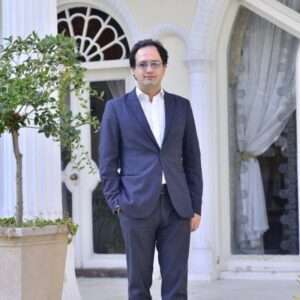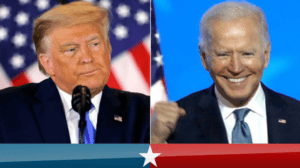By: Trends Editorial Team
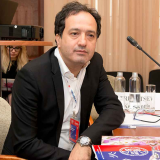 Kayhan Barzegar Ph.D. is a professor of international relations at the SR Branch of Azad University and Chair of the Department of Political Science and International Relations. He is also the director of the Center for Middle East Strategic Studies (CMESS) in Tehran. Dr. Barzegar was a research fellow at Harvard University from 2007 to 2011, a non-resident research associate at MIT from 2011 to 2014, and a postdoctoral research associate at the London School of Economics (LSE) from 2002 to 2003. His works on Iran’s foreign and regional policy and Iranian nuclear politics have been published widely in English and in Persian, including in Foreign Affairs, the Washington Quarterly, Middle East Policy, World Policy Journal and numerous academic journals. His latest publications include, “The Hard Chess Puzzle: Trump’s ‘Maximum Pressure’ versus Iran’s ‘Maximum Resistance’” Al Jazeera Centre for Studies (June 2020). His latest book is entitled, ”Iran Regional Policy in Time” (August 2019)
Kayhan Barzegar Ph.D. is a professor of international relations at the SR Branch of Azad University and Chair of the Department of Political Science and International Relations. He is also the director of the Center for Middle East Strategic Studies (CMESS) in Tehran. Dr. Barzegar was a research fellow at Harvard University from 2007 to 2011, a non-resident research associate at MIT from 2011 to 2014, and a postdoctoral research associate at the London School of Economics (LSE) from 2002 to 2003. His works on Iran’s foreign and regional policy and Iranian nuclear politics have been published widely in English and in Persian, including in Foreign Affairs, the Washington Quarterly, Middle East Policy, World Policy Journal and numerous academic journals. His latest publications include, “The Hard Chess Puzzle: Trump’s ‘Maximum Pressure’ versus Iran’s ‘Maximum Resistance’” Al Jazeera Centre for Studies (June 2020). His latest book is entitled, ”Iran Regional Policy in Time” (August 2019)
[perfectpullquote align=”full” bordertop=”false” cite=”” link=”” color=”” class=”” size=””]Thank you so much for giving Trends this exclusive interview despite your busy schedule. We are very grateful. Please introduce yourself and tell us more about your background, especially your academic work with regards to Iran and the Middle East.
I also thank you for inviting me to join you in the current issue of your interesting magazine to share some of my views as an Iranian academic and policy thinker. I especially work on Iranian foreign and regional policy and West Asia – the term I’d rather prefer to use instead of theterm “Middle East” – issues. I finished my post-secondary education, including my doctorate, in Iran. Afterwards, I felt that I still needed to learn and explore more to achieve my true level in the field of international relations and politics. Therefore, I decided to continue my education in a fine university abroad. From 2002 to 2003, I was admitted in a post-doctorate program at the London School of Economics (LSE). This was my first fruitful experience of facing the West. I believe, for an Iranian, London is a good place as a first landing site. The city with its way of life and system could well reset an Iranian that she or he could appreciate other places later on. This happened to me. My base and philosophy of thinking was built in London, but when I went to America later on I faced another world. Today, I try to combine good segments of both experiences as subsets of my Iranian identity. After I returned to Iran, I started teaching as a faculty member. from 2006 to 2008, I was accepted as a guest scholar and professor at Harvard University and continued my affiliation until 2011. Honestly speaking, it was during my time at Harvard that I found my potential in thinking and writing. Of course, Harvard as a university with all its attractive courses, professors, and educational system isn’tnecessarily the path to progress and success. It is rather its competitive environment and collected individuals with diverse views coming from all over the globe that teach you to be comparative and competent in thoughts, appreciating who you are and what you can be capable of. I found my true level in international relations and politics in Harvard. Then I was accepted as a non-resident scholar at the MIT International Security program until 2014. Before I went to America I had some sympathy toward the American way of life and politics, but upon my return I have become rather critical of American foreign policy, realizing that the world isn’t merely America, they only push you to think in this way. Since 2003, I have participated and made presentations in some 400 international conferences and specialized workshops and seminars in different leading universities and think-tanks abroad on Iran’s foreign policy, Iran’s relations with great powers especially with the US, Europe, Russia, and China on the nuclear standoff and other geostrategic matters. I have written several books, scientific articles and hundreds of op-eds in English and Persian, defining the strategic logic behind Iran’s foreign and regional policy, dealings with great powers in diverse settings. Most of my writing has been policy oriented, trying to demonstrate the main logic of Iran’s behavior in the international and regional arenas in the context of history and given its geostrategic status surrounded by hostile rivals. Currently, I live and work in Tehran. You mentioned an interesting point about the term Middle East and that you prefer to call it West Asia. Yet you are the Director of the Center for Middle East Strategic Studies in Tehran. What is your logic? In the meantime, can you tell us about the mandate at the Center? What do you do? By calling the region as West Asia instead of the Middle East we attach ourselves with more developmental and economic prosperity approaches that our country needs at the moment. Instead, the term Middle East which is related to colonization era, will rather associate us with a more political-ideological approach, consistently related to regional problems and the existing blame games, power politics, sectarian rifts, extremism and terrorism, etc. Look to the north and to the east which are our civilization’s sphere of influence and which have been rather absent in our foreign policy approach. Iran is located at the hub of West Asia and can influence all the political security and economic matters in the broader region. The sub-regions between the four important seas namely the Mediterranean, Black Sea, the Caspian and the Persian Gulf have been the focus of global politics for several centuries.
We should balance our foreign relations in the context of regionalization and try to further integrate our issues economically and politically with the neighboring zone. We should value regional interdependence instead of global interdependence. Globalization in its conventional meaning in terms of bringing technology and wealth has been useless for us. The ideology and driving force of globalization, namely liberal- democracy, good or bad, is not compatible with our political system and way of thinking and life. For instance, we signed a nuclear deal (the JCPOA), but Western countries refused to fulfill their commitments and even imposed further economicsanctions on our country.
They involved economic issues with politics. I mean,Western globalization is critical and comes with political wills. Therefore, global interdependence damaged our economy, financial system, etc. All of this is taking place simultaneously with the ongoing conflicts and tensions in the so-called Middle East and the significance of it for great powers. Trump withdrew from the JCPOA under the excuse of changing Iran’s regional behavior and limiting its missile program, because from the US and its regional allies’ point of view, especially Israel, they are endangering the regional stability and security. The issue of Israel’s security is the focus of Western Middle East policy. The focus of the Middle East issue is the Arab-Israeli conflict. By excluding Israel from any regional discutions, such as collective security cooperation in the Persian Gulf, we can relieve our energy to other issues of national interests. What they call Iran’s expansionist approach in the Middle East, is seen from our side as regional problems that have been costly for the nation of Iran. In all, I believe we should reconsider this term Middle East in our academic and policy literatures. On the second part of your question, yes, I have been the director of the Center for Middle East Strategic Studies for almost 10 years. This Center was established some 30 years ago and the name of the center by the time I joined was well-established and used widely. I only talked about my intellectual understanding. Of course there is already a great movement inside Iran to change the term to West Asia.
As regards to our activities at the Center, we produce policy papers and scientific journals in three languages Persian, English and Arabic. We have a guest scholar program that I implemented for the first time in Iran. This program includes training for pre-doctoral and post-doctoral research fellows during the academic year. During this period, we hold seminars and workshops to train them to diagnose the current trends in the region in the context of Iran’s national interests. We wanted to create a new and young generation of scholars and writers who can be competent at the regional and global levels.
I personally believe that social time is key to the progress of individuals’ thoughts. We have different studies groups such as Persian Gulf Studies, Turkish Studies, etc., all of which are related to strategic matters of the region. As an insider into Iran’s academia as well as politics, what do you think about Iran’s place in the region and the world, both politically and economically? It wouldn’t be difficult to predict where Iran stands in ten years. A careful reading of Iranian history shows how the state of Iran survived foreign threats during past centuries. Iran is amongst the oldest nation-states in the world. During past centuries Iran became weak as a result of inaccessibility to advanced technology and dependency on foreign powers. Right now, a new Iran is emerging to re-establish its past status. For instance, Iran is restoring its sea power in the Persian Gulf, not merely to tackle the threats of the US navy, rather for its rightful status that is the demand of the nation as a dominant power of the northern part of the Persian Gulf and the Strait of Hormuz. Yet, we should solve a dilemma in our regional policy and that is that the two constants of Iran’s foreign policy e.g. keeping its strong deterrent power and expanding regional cooperation should be somehow balanced in the context of the country’s national interests. So far as the American several bases are active across Iran’s borders, acting against Iran’s security interests, one should not expect Iran to bargain on its deterrent power as a priority and grantor of the survival of the state. In fact, no country would do so.
The nuclear deal with world powers was aimed to resolve this dilemma by diminishing Iran’s sense of strategic insecurity toward the US, paving the way for constructive regional cooperation. Yet, the Trump administration’s so-called “maximum pressure” policy ruined all the good will of the Iranians who truly wanted to end the prolonged standoff. Yet, as I explained briefly above, other elements of Iran national power such as geopolitical superiority, human assets, rich natural resources, national solidarity, etc., compensate Iran’s current economic weakness. But I am sure Iran will pass this period of hardships and will find its way towards progress and advancement.[/perfectpullquote]
[perfectpullquote align=”full” bordertop=”false” cite=”” link=”” color=”” class=”” size=””] 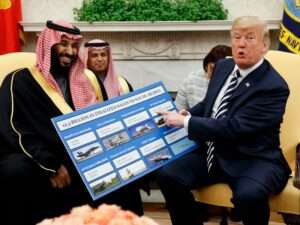
What about the geopolitical divide between Iran and its GCC (Gulf Cooperation Council) neighbors? Many believe Iran’s differences and colliding interests with its Arab neighbors are historical and deep-rooted (existing from long before the Islamic revolution). Is there merit to this? If so, is comprehensive and sustainable peace possible to achieve at all? What are the challenges and opportunities between Iran and its neighbors?
Such interpretation is rather inaccurate and against the field realities, especially considering the geographical and historical determination. Our region is full of historical constructs, inherited from the past, amongst the strongest is this so-called historical division between Iran and its Southern Arab neighbors. Such interpretation is often provoked by outsiders and the ruling elites of some of these conservative regimes for their own individual reasons. Some Western countries such as the US, the UK, and France have strong bilateral financial and trade interests with these oil rich countries. They also sell expensive advanced weapons to them under the excuse of Iran’s regional threats. Therefore, they always take the side of these regimes. I think all the efforts made by major European countries to mediate between Iran and Saudi Arabia are only adding to their existing tensions as they are contradictory with their actual policy. On the other hand, by magnifying Iran’s threat the ruling elites of these countries try to unify themselves and legitimize their reigns in their own domestic politics. They try to institutionalize this construct in their domestic politics and that siding the West will provide their states a security guarantee. But in reality they want to guarantee the security of their regimes. On Iran’s side, the reality is that Iran is concerned about the American military bases stationed in these countries that could be used against the country under any possible military confrontation. They are too close to Iran. The drone that targeted and assassinated Commander Qasem Soleimani flew from one of these bases. There is also the threat of Israel using the air space of these countries to attack Iran’s nuclear facilities. Recently UAE and Bahrain made peace with Israel that is against Iran’s interests by bringing Israel closer to Iran’s borders in the Persian Gulf. What the Western countries and their Arab allies call Iran’s expansionist or interventionist policy in the region, is perceived by Iran as a defensive and preemptive approach to tackle imminent threats coming from the region, amongst them Sunni extremism in the form of ISIS. My point is that it is all related to constructed geopolitical rivalries and it has nothing to do with sustainable historical enmity between the two sides. Whenever there are more tensions and confrontations in the region this construct shows itself more.
In the meantime, the entirety of the GCC is under a real challenge at present. Some of these countries have good relations with Iran such as Qatar and Oman. Kuwait has a moderate view towards Iran. It is only Saudi Arabia, UAE, and Bahrain that are currently in rift with Iran and had hoped to take advantage of the Trump opportunity for reversing the regional balance of power in their own favor. The real issue with Iran, isn’t the nuclear issue. Rather it is Iran’s increased regional role, as they put, which could challenge the pillars of their regimes from inside. A sustainable economic and political security cooperation between Iran and its GCC neighbors could only occur if the dominant power in this Council which is of Saudi Arabia changes its approach towards Iran.
Iran’s moderate government has been striving to restore relations with Saudi Arabia. Foreign Minister Zarif made a lot of efforts in this regard. But the problem is the other side. The Saudis think that this development will add to Iran’s existing regional power and are therefore hoping that by Trump’s so-called “maximum pressure” policy could change Iran’s regional policy. Yet, they perhaps don’t know that Iran cannot afford to retreat from the region so far as the threats of the US and Israel, mentioned above, exist. [/perfectpullquote]
[perfectpullquote align=”full” bordertop=”false” cite=”” link=”” color=”” class=”” size=””] 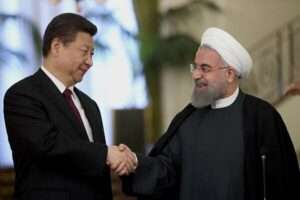
What should Iran do to develop its economy and industry, given the never-ending regional and international hostilities? Should Iran look permanently to the East as a viable alternative to the West in terms of investment and technology? Would there be the any economic shift for Iran in the future?
Iran has great economic potentials. Its superior geopolitics, situating at the hub of four important sub-regions i.e. the Levant, Persian Gulf, Central Asia and the Caucuses, and South Asia, which are also attached with Iran historically and culturally, gives the country a unique position to integrate its economy with the regional economy, thereby strengthening its national economy. Iran has advantages in fields such as energy, tourism, industry, and agriculture which could complete regional economy. Yet, as a result of the current regional intra-state and inter-states tensions and foreign powers’ wars, which has led to never-ending conflicts in the region, Iran’s path to regional integration has somehow been blocked or ignored. In addition, years of dependency on oil incomes, bureaucratic mismanagement of the country’s wealth and human assets, and dependency on foreign investments and technology as a result of believing in global interdependency and globalization, has weakened Iran’s economy. Iran signed the nuclear deal with world powers to open the country’s economic doors to world economy. Yet, imposing intensive sanctions by the US and incapability of European countries to fulfill their commitments under the JCPOA terms vastly disappointed the Iranians from the West, giving Iran no choice than to stand on its own feet and try to diversify its economy and taking advantage of its regional situation. In this context, looking to the East and increased economic relations with Asia becomes significant for Iran’s economy. At present, Iran is increasingly becoming “inward looking.”
The idea of looking to the West or to the East is rather a political intellectual matter mostly for domestic consumption. The fact of the matter is that while Iran is benefiting from both the Western and the Eastern economic potentials, it should build its own economic trend compatible with its national characteristics, and that is to strengthen itself from inside first, then attach itself with the regional economy, and then try to integrate its economy with global economy, not vice versa. Iran should value regionalism and regionalization in its political and economic orientation.[/perfectpullquote]
[perfectpullquote align=”full” bordertop=”false” cite=”” link=”” color=”” class=”” size=””] 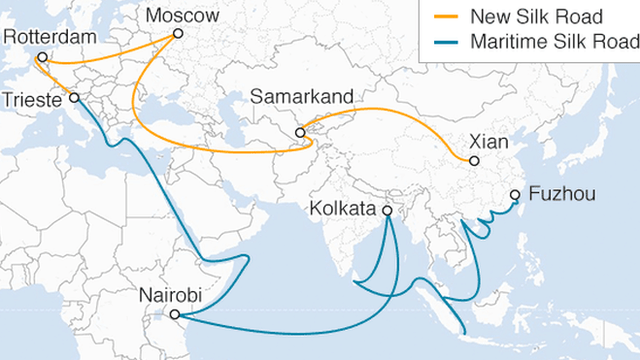
There has been a lot of talks about the 25-year plan between Iran and China. What are your thoughts on that? Will the agreement, if reached, deprive Iran from industrial and trade opportunities with the West, Japan etc.? How can Iran balance its act vis-à-vis all camps?
This exactly relates to my above argument of the reason behind the increased value of regionalization for Iran’s economy. The Iran-China comprehensive cooperation would benefit both countries. For Iran, China has access to transferable technology and financial resources. For China, Iran has energy resources and a point of stability in the West Asia region, a real a powerful nation-state that could survive for centuries. China needs such a state in the region to achieve its economic-political plans in the broader region. The Chinese BRI (Belt and Road Initiative) could help Iran to integrate its economy with the regional economy.
This coalition of a regional power (Iran) with a global power (China) could benefit the regional stability as well.
It could politically and strategically equate the traditionarole of the US and West in the broader region in the long-term. Yet, such an agreement won’t necessarily deprive Iran from the Western economic, as the Western camp itself is looking toward China and Asia. Of course, except the US that perceives China as potential rival for its current global hegemony. A strengthened Iran in the region, capable of influencing the regional political security and economic trends, would be more attractive for both camps. Therefore, my thought is that Iran shouldn’t tilt towards one camp or another. Rather it should empower its national and regional status and try to integrate itself in its own region. Then both camps approach Iran as a pillar of stability.[/perfectpullquote]
[perfectpullquote align=”full” bordertop=”false” cite=”” link=”” color=”” class=”” size=””] 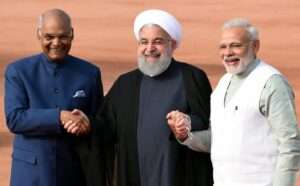
How do you see Iran-India relations evolving, given the strategic partnership of Iran (and Pakistan) with China?
Any increased Iran-China shouldn’t and wouldn’t concern Iran-India relations. As the two countries learned from the past and historical experiences to not act against one another for the benefit of a third party, either it is China or Pakistan. A good thought about Iran and India, beyond the long rooted historical and cultural relations, is that both nations have common strategic, political and economic experiences. Strategically for instance, the Indians have accepted the reality of China in the Indian Ocean and therefore have been trying to adjust themselves with it in the context of their national and geopolitical interests. The Iranians also have accepted the reality of the presence of the West in the Persian Gulf and have been trying to adjust themselves with it from a position of power. Politically, both countries have tried to balance between their available resource and their strategic constraints on several matters such as fighting with terrorism and foreign interventions. Economically, both nations have been under sanctions for some time and learned how to become inward looking and count on their own resources. The ports of Chabahar in Iran and Gwadar in Pakistan are better off to be connected for both India and China. [/perfectpullquote]
[perfectpullquote align=”full” bordertop=”false” cite=”” link=”” color=”” class=”” size=””]The JCPOA has many supporters and critics alike. Was the deal worth the hassle for Iran in youropinion?
Can INSTEX or any other initiatives by the EU and/or other players save it?
The nuclear deal was meant for Iranians to accommodate their issues with the West, especially lifting sanctions. It was a fair deal in my view considering Iran’s position in the world. Iran wouldn’t weaponize its nuclear program in return for sanctions lift and ending hostilities with some Western countries. Today we are in a limbo. Yet, one experience can be gleaned from this deal and that is that Iran and the West were not ready to reach to this level of relations, as both sides have still a lot of issues to discuss and resolve. They have different interpretation about the regional developments and their directions. They have different understandings about fighting terrorism and sectarian rifts. In this respect, perhaps Europe think differently of that of the US about Iran, and accepts that Iran is a regional power and should participate and include in any regional settings unlike what the Americans are thinking about Iran. Yet, Europe is incapable of battling economically with the US in favor of Iran. Europe doesn’t have the political will, as well as economic potentials to do so. Therefore, financial mechanism such as INSTEX are unviable to fulfill Iran’s demands.
The upcoming US elections may make things better or worse for Iran, depending on who’s in the White House in 2021! What are your thoughts on this? Any predictions on the outcome?
The dominant wish in Iran is that Joe Biden wins the elections. Because it psychologically would be a relief and the afterwards positive political and economic developments is good for Iran’s current hardships, etc.
Biden said he would return to the JCPOA that could a point of restoring trust for initiating other matters of common interests. By withdrawing from the nuclear deal and assassinating Iranian national commander, visa limitations on Iranians, coercive sanctions, etc., President Trump disappointed Iranians not only on his administration, but on America as awhole.
Trump rather institutionalized the sense of enmity towards the US inside Iran. I believe this latter one was the worst development that is happening between the two nations. As to predict who would win the US elections, as experience shows the presidential debates matter most and we should wait and see who is faster to make his points and sell it to American people As for the interests of Iranians, I hope the US changes the current track of dealing with Iran either with Trump or with Biden.[/perfectpullquote]
[perfectpullquote align=”full” bordertop=”false” cite=”” link=”” color=”” class=”” size=””]A Biden presidency will surely open economic doors to Iran at least in the short to mid-term, but will it really change the US long term strategy vis-à-vis Iran? In fact, many in Iran believe that reaching a comprehensive deal with Trump is more viable than with any conventional Republican or Democratic President! What are your thoughts on this?
This might be true that a Biden election will positively impact Iran’s economy, not just in the context of Iran US relations, rather by the effects it will have on other countries to open up with Iran, without fearing the US economic revenge. Yet, I am sure any meaningful strategic change wouldn’t occur in the US approach towards Iran.
Even president Obama who made a historical moment by signing the nuclear deal with Iran, hoped that by such a deal the US could manage to change Iran’s regional behavior and limits its missiles program.
In fact, he wanted to manage the so-called Iran’s issue by his own soft way. Indeed, the mainstream political structure of the US were unhappy of such a deal and we saw that with a presidential replacement everything returned to its first place. This leads me to think that the US for several reasons has a problem with a strong Iran in the region and will try its best to check Iran’s power and its muscles across the broader region and Biden isn’t an exception. Yet, this is not what Iran can afford to accept for its own strategic reasons that I mentioned earlier in this interview.[/perfectpullquote]
[perfectpullquote align=”full” bordertop=”false” cite=”” link=”” color=”” class=”” size=””]What’s next for you, in terms of research, writing, academic work and travel as well as business endeavors?
Honestly, I took advantage of the COVID-19 lockdown and published a few scientific and policy oriented articles and translated of a good English book for Persian readers. I was rather exhausted from too much traveling lately. In last summer, I published my latest book entitled “Iran’s Regional Policy in Time,” in which I discuss why despite all the ups and downs in Iran’s domestic politics, its regional policy has never been the subject of change. There two dominant trends regarding Iran’s regional policy. First, is a strong Iran in the region (the dominant trend), and second is Iran is a strong region (President Rouhani’s trend). I tried to synthesize them and create a third trend and that is a strong Iran from inside.
I published a piece in English on this regard for Al Jazeera Center for Studies. I wish to develop this idea and connect it to policy circle.[/perfectpullquote]
I have always believed that only a strong Iran will have
the tendency to talk with the US, because it feels more secure.


